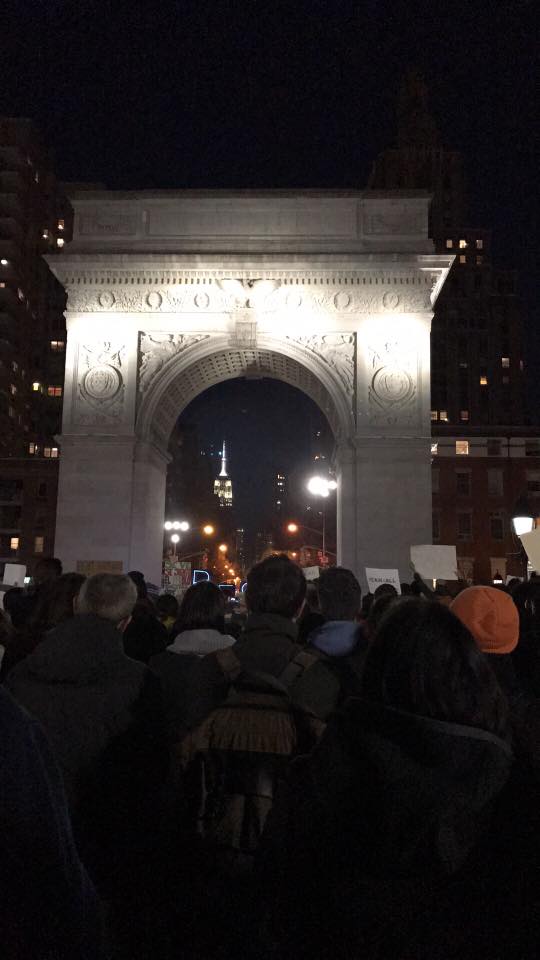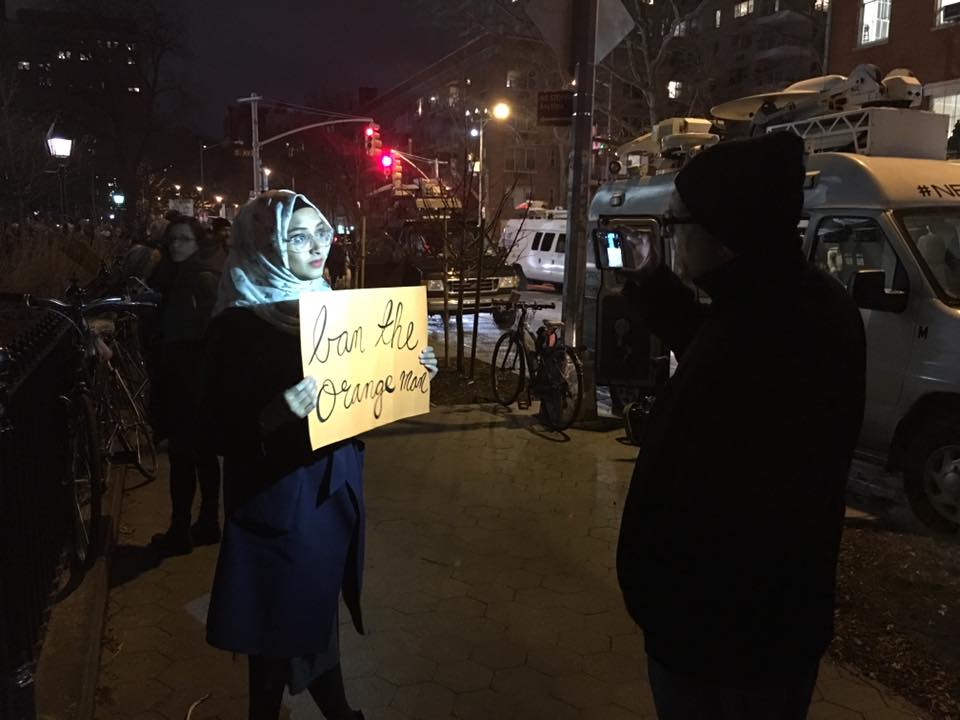How Trump's threatened federal funding cuts to sanctuary cities could impact NYC
Newly inaugurated president Donald Trump issued an executive order on Wednesday that includes a statement that sanctuary cities will be ineligible for federal grants, the Independent reports. Sanctuary jurisdictions are cities and counties throughout the U.S. where local governments adopt a policy of non-compliance with federal authorities by not prosecuting undocumented immigrants; New York City, along with several other cities throughout the state, is one.
Such locales, the order says, "willfully violate Federal law in an attempt to shield aliens from removal from the United States. These jurisdictions have caused immeasurable harm to the American people and to the very fabric of our Republic."
New Yorkers react to the prospect of federal funding cuts
New Yorkers responded swiftly to the news, with CAIR-NY holding an emergency rally for Muslim and immigrant rights in Washington Square Park Wednesday night. The demonstration was attended by hundreds of locals, as well as city government representatives, including Public Advocate Letitia James, Brooklyn councilman Jumaane Williams, and City Council Speaker Melissa Mark-Viverito.


In a statement, the Speaker expressed on Wednesday her dismay at the executive order. "This is a terrible day for the United States of America," she said, characterizing the order's claims about sanctuaries as a "false narrative being peddled by a highly insecure individual." She added that in terms of financial loss, "we know that he wants to be punitive to those cities that consider themselves sanctuary cities but we can't say with certainty exactly what that amounts to."
Mayor Bill De Blasio also reacted with similar expedience, writes CNN, saying that the federal funding cuts could pose a national security disaster and vowing to fight them in the courts.
A spokesperson for the office of NYC Comptroller Scott Stringer explained that should the executive order be enforced, NYC could stand to lose a significant number of federal grants that go toward protecting the city from terror and crime. He cited the Urban Areas Security Initiative, which helps large cities with anti-terrorism efforts, as well as other counter-terror funding amounting to millions of dollars, as at risk for being cut, damaging crucial NYPD work and endangering the city.
Back in late November, Stringer released an analysis of how federal funding cuts could hurt the city, noting that the NYPD receives "61 percent of its $380 million Intelligence and Counter-terrorism budget from the Federal government."
Why the executive order may be unconstitutional
David Bier, a policy analyst with the Cato Institute, says the executive order imperiling some of the federal funds NYC gets from the government—about $53.1 billion was funneled to New York state in 2013, by the way, of which a majority went to the city, he points out—also violates the Constitution. This could bode well for Mayor De Blasio's plan to take the fight to the courts.
Bier explains that the Trump administration seems to be trying to eliminate sanctuaries based on a false premise of what they do. "There is no city in the United States where immigrants are protected from removal from federal immigration enforcement. Thus, there are no true 'sanctuaries' in the country," he says. "That said, certain states or localities choose not to automatically use their resources to aid federal immigration enforcement. In other words, they will not arrest or detain individuals on behalf of the federal government."
Going by this, a statement within the executive order that says "the Attorney General shall take appropriate enforcement action against any entity that violates... the enforcement of Federal law" is in fact moot, as sanctuary cities do not violate law enforcement. Rather, they passively refrain from arresting undocumented immigrants on behalf of Immigration and Customs Enforcement.
Bier cites two Supreme Court decisions that further reveal illegalities in the executive order. One, U.S. vs. Printz, ruled that states "cannot be conscripted into acting as federal enforcement agents"; the other, NFIB vs. Sibelius, expanded that to forbid the federal government from coercing states by limiting federal funds.
"Barring all federal grants to states and localities that refuse to detain immigrants would definitely be unconstitutional coercion," Bier says. "If the only grants that were impacted [under the executive order] were law enforcement grants, then it would be a closer call, but taking away all law enforcement grants, even if smaller in number, could be seen as a threat to the safety of their residents, which could still be coercive."
New York magazine suggests that many of Trump's executive orders have been more spectacle than substance, written without vetting from legal counsel or congressional review, and the order to cut funding to sanctuaries in particular is "legally tendentious."
Resources for undocumented immigrants
New York City is not alone in being threatened with funding cuts for its sanctuary status, nor are city officials isolated in their stated intent to resist the executive order. The New York Times writes that mayors across the country—including in Boston, Los Angeles, Austin, Chicago, and more—are promising to fight. At a news conference, Mayor De Blasio declared that the city was “going to defend all of our people regardless of where they come from, regardless of their immigration status."
Still, it makes sense that NYC's undocumented immigrants would be feeling particularly concerned now about their status, safety, and well-being. Below is a list of organizations offering legal services to the local immigrant community:
New York Legal Assistance Group
You Might Also Like




























